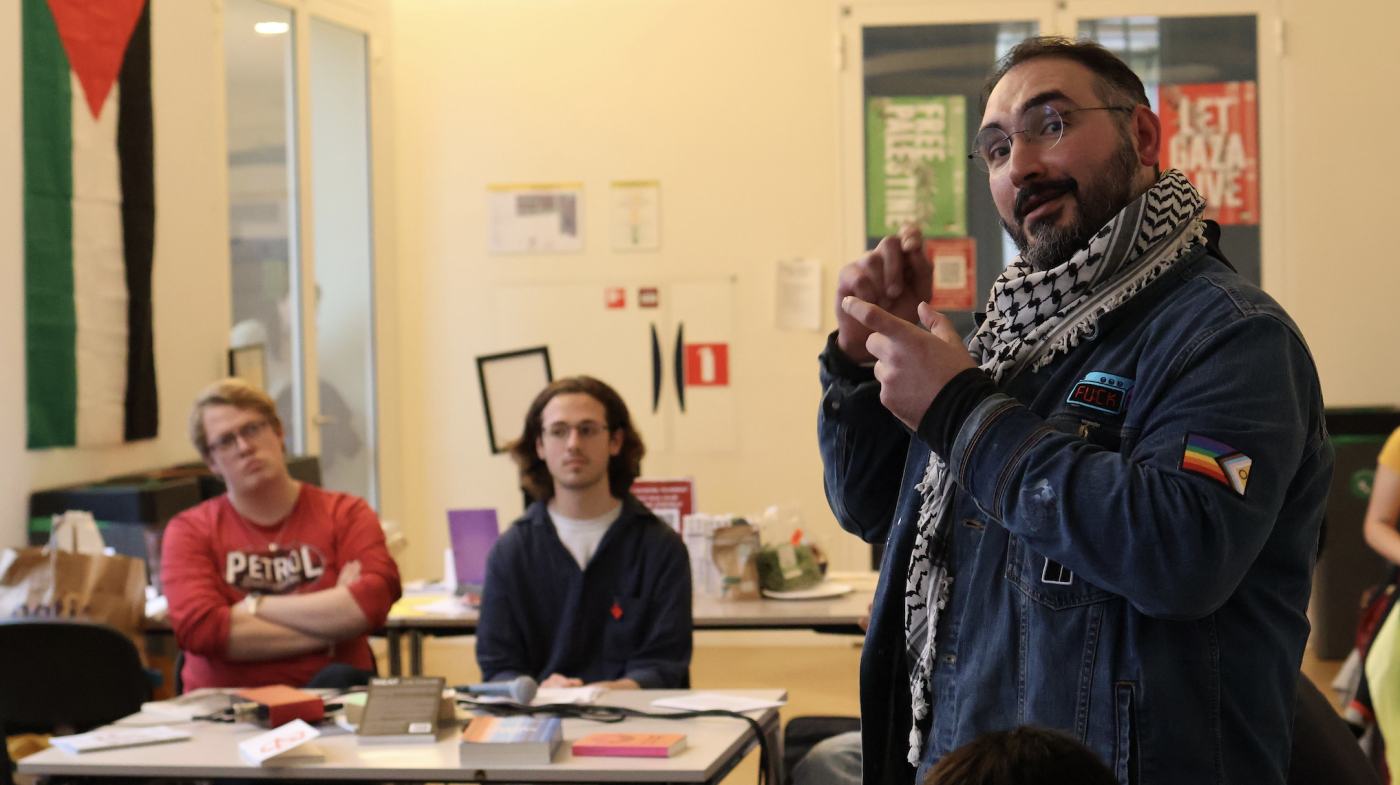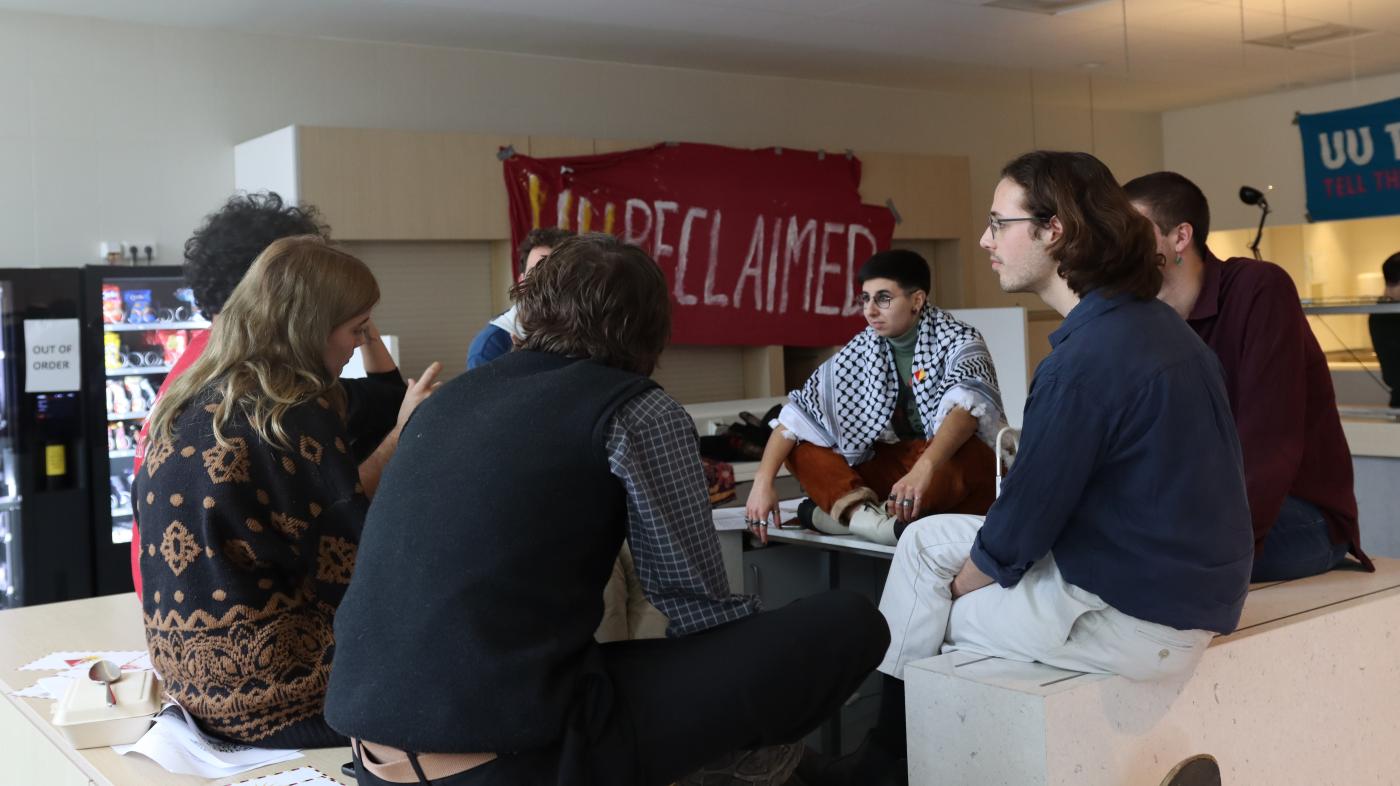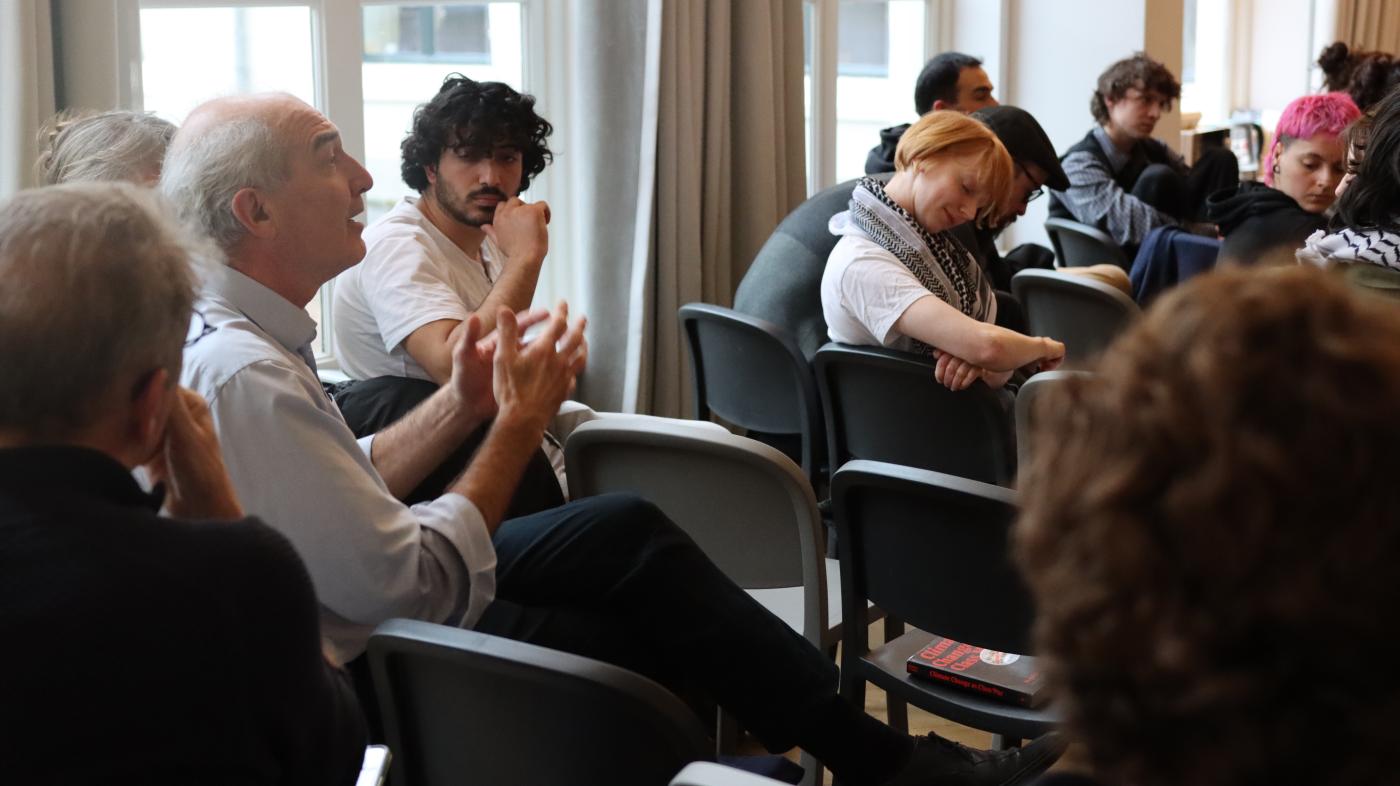Students who occupied the library want more room for dialogue
How to make the university more democratic?

Around noon, about a hundred students occupied the dining area of the city centre library on Thursday, February 22. That is if this could even be called an occupation, considering the students had already agreed with the university to use the space that afternoon. They moved tables and chairs around, brought some food, confectioned T-shirts calling for more democracy at UU, and organised workshops, musical performances, and a debate.
The initiative was led by End Fossil: Occupy (EFO), which teamed up with other organisations, such as the protest groups Casual Utrecht, the Consent Project, Plant-Based Universities, Scientist Rebellion and Utrecht in Solidarity for Palestine. The common denominator among all these groups is their concern for democracy at the university. Students protesting for the environment and Palestine are particularly flabbergasted by the university's refusal to put an end to all collaborations with the fossil fuel industry and firmly oppose Israel's attacks in Gaza, which they call a genocide. They feel as though the university doesn't listen to them.
Almost ten years ago, a protest was organised on the same spot by the action group New Utrecht University and the teachers affiliated with Rethink UU. They held daily lunchtime lectures about how the university could become more democratic (both articles in Dutch, Ed.).
Many of the issues covered then were discussed once again this Thursday. In one of the workshops, students said that they were hoping to see critical debates involving students and employees about what should change at the university. However, they've noticed that teachers are not always willing to do that. "I study Politics, Philosophy & Economics (PPE) and teachers tend to avoid topical debates. I feel excluded whenever I make a critical remark," sighed a disappointed student. More students felt the same way. In their view, the university focuses too much on implementing the educational programme and does not make enough room for academic debates about current issues.

A teacher who participated in the panel said he'd tried to do that, but he was reprimanded by the Executive Board over his critique of the Israeli lobby club Cidi.
Democracy at the university was the main theme of the debate. How can the university become more democratic? The student members of the University Council admitted to having a hard time. They are supposed to represent the student community, but only ten percent of students voted for them and no one seems to know what they do exactly. They have the opportunity to weigh in on the university's plans and make suggestions about things like education guidelines or sustainability plans. But, when they really want something, such as their recent call to support the news platform ScienceGuide, their demands go unheard. "You guys don't have an actual say. You're just a lobbying club for students," said someone in the room. The question is, therefore, how to get students involved with the administration of the university and whose responsibility it is to do that.
The students present at the occupation feel the need to have more places at the university where open discussions could take place about political topics, in a similar fashion as what they were organising themselves in the library's dining area. In addition, they would like the Executive Board to listen to students and thus take a clear stance regarding Palestine and the fossil fuel industry. Last but not least, they want to have more say in what happens at the university in general. The University Council had more say until the 1990s, but powers were transferred to the Executive Board and the Supervisory Board from that decade onwards.

UU President Anton Pijpers joined the conversation at this point. He was there to listen, most of all, but the moderators ended up making him participate in the debate as well. He said that the Executive Board is always open to receiving suggestions and assured the students that the board does listen to them. As an example, he mentioned the inauguration of De Vagant, an open space for students, next to the Koningsberger building. The space was set up at students' request and cost the university a few hundred thousand euros. Moreover, he stated that the Executive Board is tasked with representing all 40,000 students and 9,000 employees and that it's unlikely that the opinions of the entire UU community resemble the opinions of those gathered at the library. It is up to the board to weigh that up.
That remark went down badly. One of the students said that not all students can be politically active because they cannot afford to spend time and money on that. "They study full time and they also have to work to support themselves. Being a student is about survival." Others believe that the Executive Board does not take the interests of students into account in their decision-making at all. They did not recall that there is a student assessor in the Executive Board too. Whenever they talked about the board, they only referred to its three members.
Former UU Council member Floris Boudens called for the occupation of the fifth floor of the Administration building so that students can have a say in administrative matters. Another student suggested all decision-making to happen through assemblies in which students and employees would directly participate in the management of their work.
Trade unionist Tim de Winkel finds all that unlikely. He asked Pijpers to consider the small steps that could be taken that would mean a lot, such as creating spaces where open political discussions could take place.